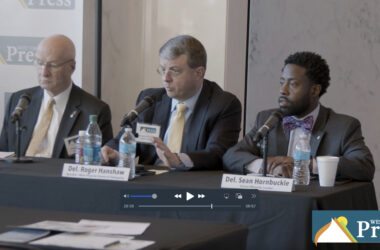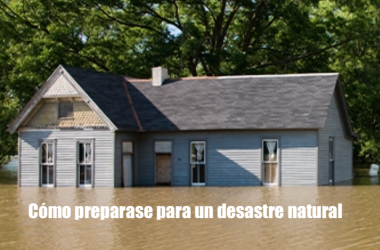By BRANFORD MARKS, CAROLINE SZWED and BRANDON HITE
Mountaineer News Service
MORGANTOWN, W.VA. — It’s happened to all of us: you come home excited to get caught up on your favorite show on Netflix or turn on your laptop to check your Facebook and you get a pop-up saying no connection. You can blame it on your cable provider or too many people using it at once. The problem may not be a loose wire or software problem. It may be due to where you live.
TechNet is a political network of CEO’s and executives that promote the growth of innovation in technology. The company puts together an index to rank the states in broadband network quality by using three criterion: adoption, network speeds, and economic structure. In 2012, the TechNet State Broadband Index found Washington State to have the highest rate of network quality and broadband adoption while West Virginia ranked 35th. Although that number may be startlingly low, TechNet also found that West Virginia is an “overachiever” state. An overachiever state is a state that does not have an inherent advantage of broadband due to difficult terrain, open rural spaces, or economies that are less reliant on technology than many others. These states are states that may have an overall low ranking of broadband connectivity but whose rankings would be even lower if they did not make good choices to plan and invest in broadband.
In addition to ranking 35th in terms of overall connectivity, West Virginia also has the second highest number of seniors who are not only averse to adopting broadband but also computers and technology in general.
“At first I was scared to death. I didn’t know if I could do it or not,” said fifty-nine year old Ky Lewis, the supervisor for Arnold Dining Hall at West Virginia University, as she described the first time she had to start using computers for work. “Someone had to show me, and we were just hands-on trained.

After overcoming her inital anxiety, Ky Lewis, 59, now comfortably uses her computer both for work and at home while relaxing.
I would try a little bit, and then I would get scared, and then I would not do it for a while. Once I got to the place that I needed to do it, it took me about four months or so to keep it going, and now I’m okay until they shake the system up or put a new one in. Then we’re all a little shaky on it.“
In West Virginia, the West Virginia Broadband Deployment Council administers and oversees broadband deployment, but there are many different organizations looking to expand access to broadband, like Bridgeport-based CityNet, working on the technology infrastructure.
As part of its efforts to improve broadband in West Virginia, CityNet has recently started development on nine gigapop facilities to connect to national Internet networks located in Columbus and Pittsburgh. A gigapop is a location with open access meaning any carrier can connect to it. With the aid of the gigapop facilities, West Virginia, in theory, would receive higher Internet speeds and lower costs. The CEO of CityNet, Jim Martin, said that expanding broadband within West Virginia is a necessity as the current status is unacceptable. “If they do get broadband, it’s not as good as quality broadband in other areas of the country. Having broadband Internet is very important. It’s become one of the most important utilities in our everyday lives. You can find and learn anything you want on the Internet,” Martin said.
Those and other groups’ efforts have started to show some promise as West Virginia has had the largest increase in broadband among all states between 2007 and 2010, and currently 91 percent of citizens have access.
According to Sen. Jay Rockefeller, at the 2013 West Virginia Broadband Summit, those and other groups efforts have started to show promise as the population of West Virginians, with access to broadband Internet, has increased by 19 percent with the overall total being 91 percent connectivity. While access to broadband Internet has improved, according to the 2012 TechNet’s State Broadband Index, West Virginia’s adoption rate has increased to 59 percent in 2010 up from 33 in 2007. However, even though nearly all of West Virginia has access to broadband there are still many, particularly seniors, who choose not to adopt the service.
Future Generations, an international non-profit organization based in Circleville, W.Va. received a $4.4 million grant from the American Recovery and Reinvestment Act through the Broadband Technology Opportunities Program to create the West Virginia Broadband Opportunity Program. Through the program, Future Generations partnered up with 60 volunteer fire departments in West Virginia and set up computer centers in the fire stations to help bring computer equipment and skills and training to increase broadband access and to make broadband more relevant to the needs of individuals and families in West Virginia. The Director of Communications of Future Generations, Traci Hickson, said that seniors are actually a group that stands to benefit greatly from increased broadband access. “Seniors often have more time, and having access to broadband and computers allows them to be in some ways a little more creative with their time by having access to family members, hobbies, news, and health care information.” Hickson said that many seniors realize it’s a way to stay more closely connected with family. “We found particularly that seniors were the most active users of the computer centers.”
Marketing Coordinator for Senior Monongalians, Vicki Lewis said with the way society is changing it is important for senior citizens to keep up with the times. “A lot of service and a lot of business is done solely over the internet. If seniors know how to use it, it opens up a world of possibilities for them, and as always, the more information you have the better prepared you are for any situations. Broadband is important. It speeds up that whole process and makes it more user friendly for people.”
Lewis said that as technology continues to change, seniors must be willing to learn how to use these changes to their advantage, “It’s going to come to a paperless society, so if seniors could at least learn their banking skills and those kind of things. . .” Lewis said that seniors would be able to live a more efficient lifestyle with the use of computers, “I would highly recommend that seniors know at least a little bit about computers.”




